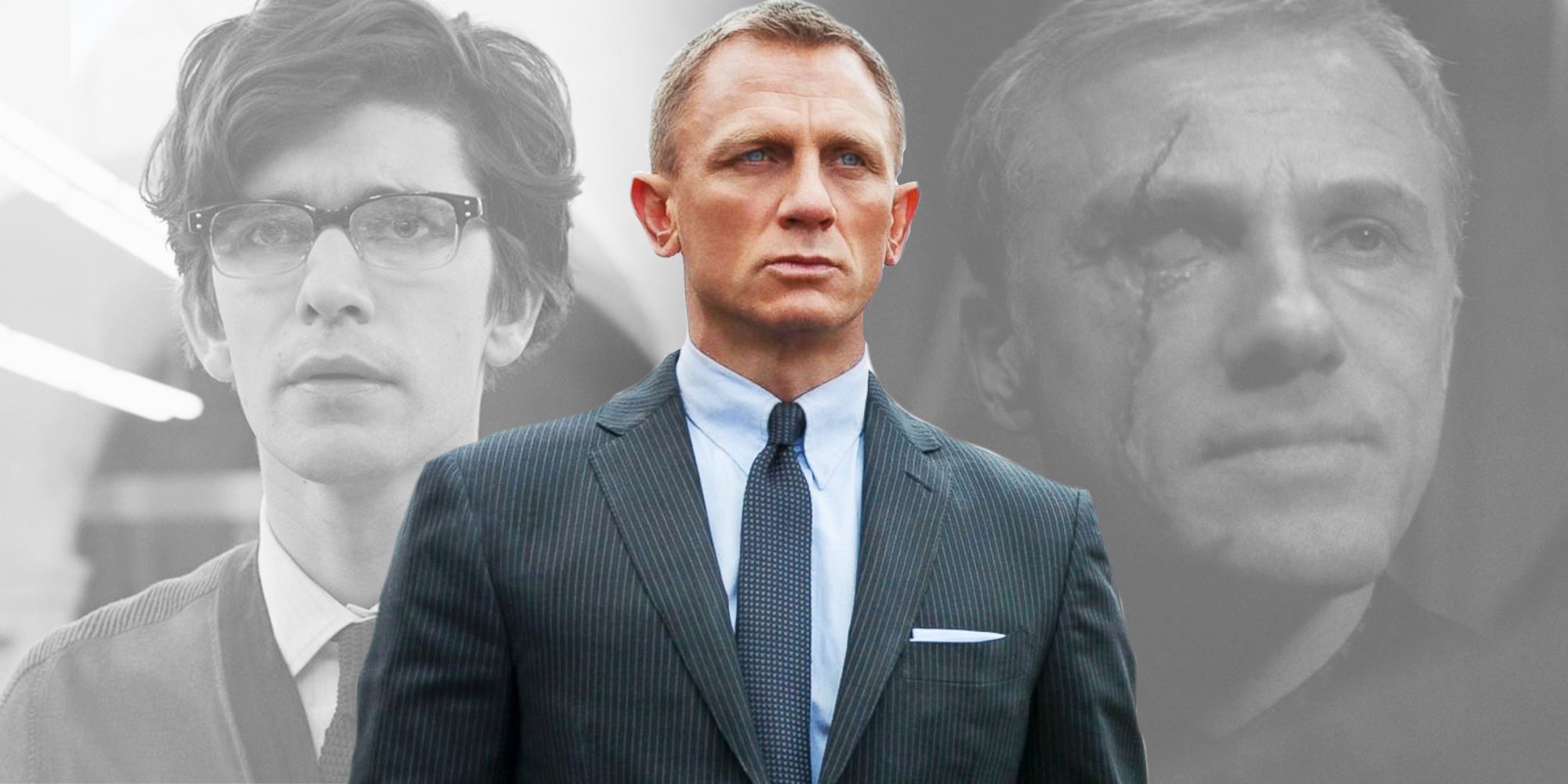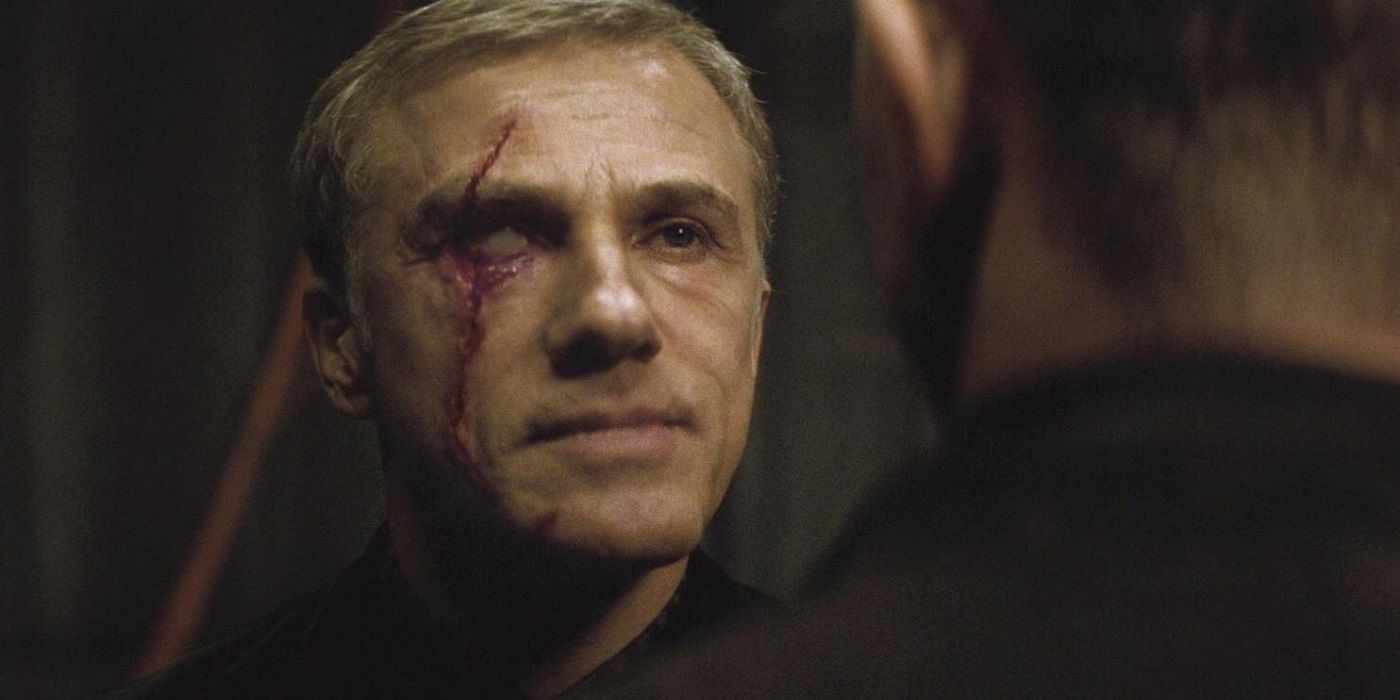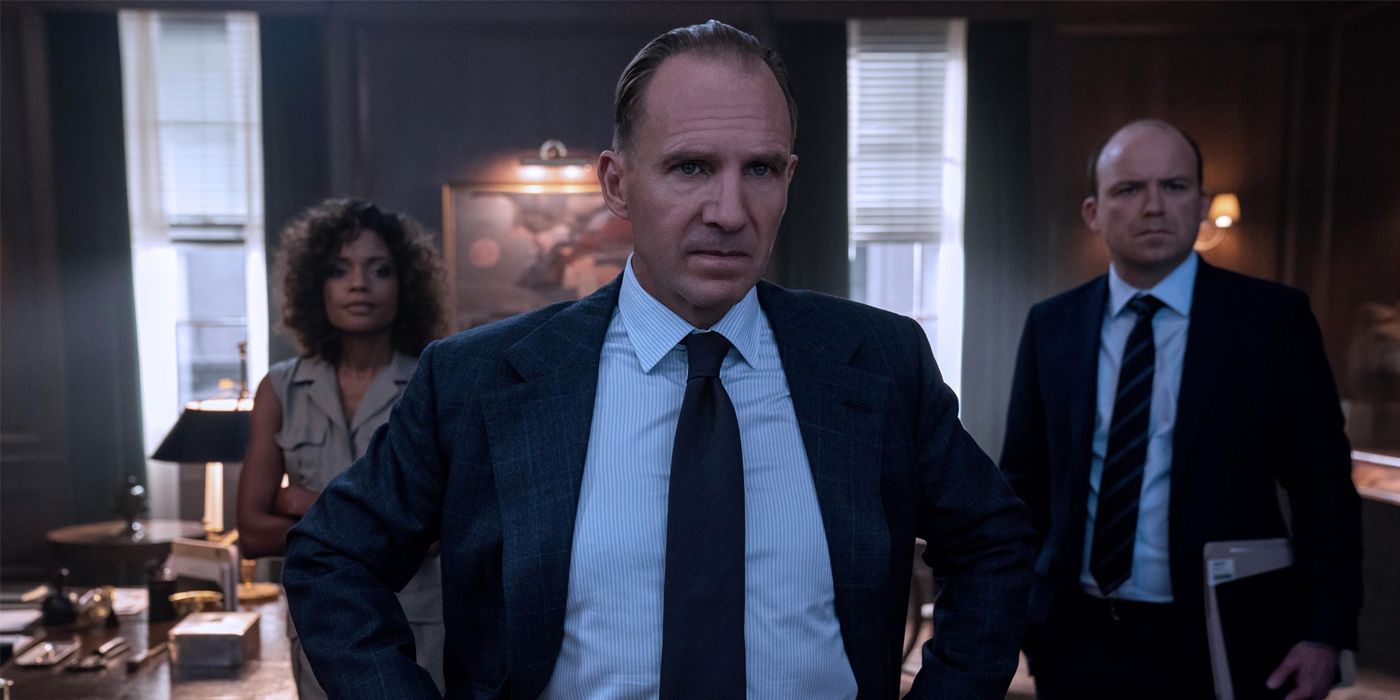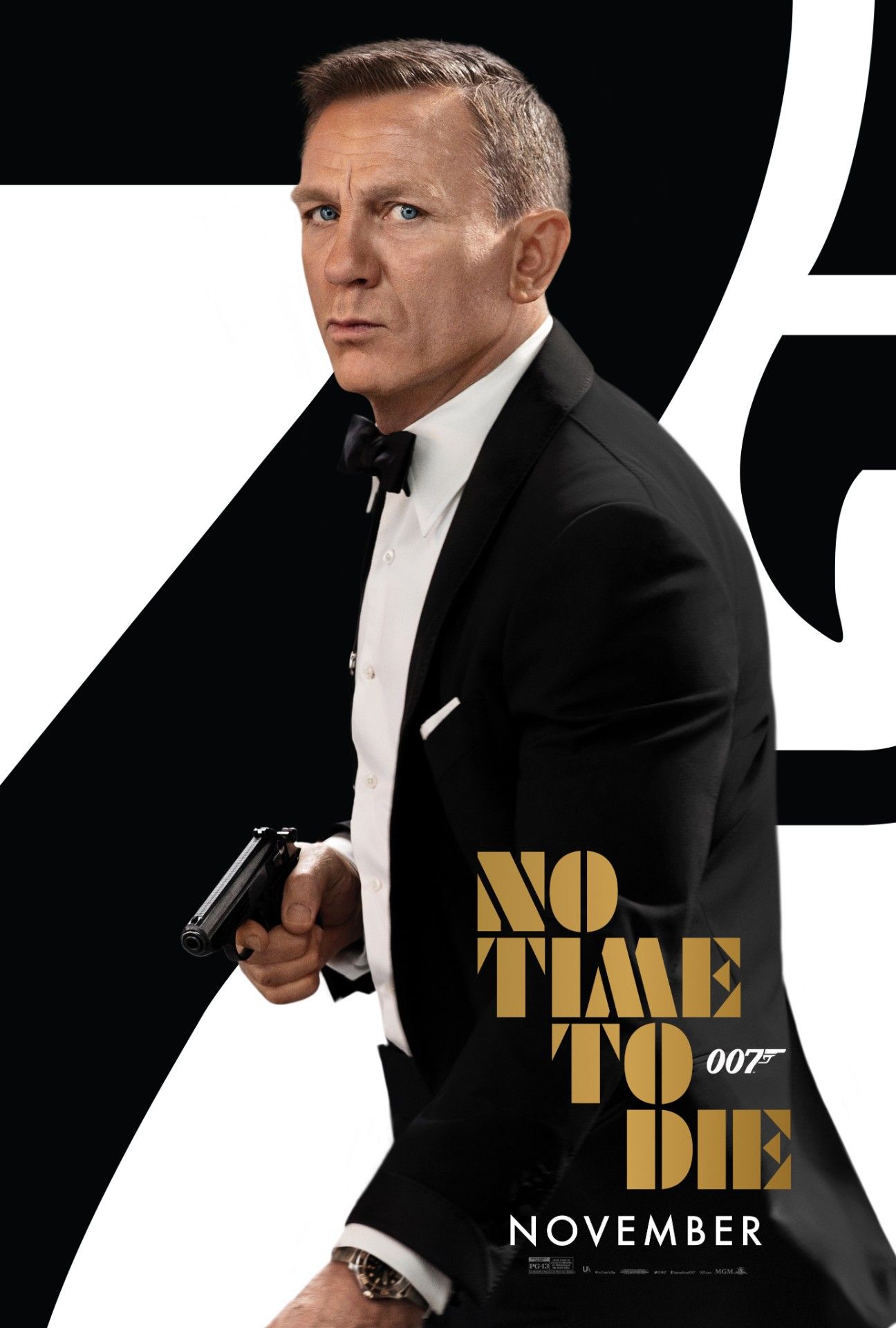James Bond has been revitalized for the modern age, thanks in part to Daniel Craig's rugged take on 007, but the franchise's biggest struggles are with its own history. Craig's turn in the tux will soon come to an end with his fifth and final outing, No Time To Die, set for release later this year. The actor has announced he's quitting after Bond 25, prompting the obligatory firestorm of speculation over who will replace him.
But before someone new takes on the role, there'll surely be much in the way of reckoning with Craig's legacy as Bond. The Knives Out actor is credited with redefining 007, introducing an unrefined version of the double-O agent in the nascent stages of his career in 2003's Casino Royale. This rough-around-the-edges 007 proved popular, and helped revive the Bond series after the problem-plagued Die Another Day. It's been a somewhat uneven road for the franchise since Royale, with Quantum of Solace failing to wow fans and critics, followed by what many consider a return to form with Skyfall. Then came 2015's Spectre, widely considered another misstep.
Now, Craig is hoping to go out on a high with No Time To Die. And while there's widespread anticipation for the film, there's also the potential for an issue that's been hampering modern Bond films since Skyfall to undermine the upcoming movie. Following the poor reception to Quantum of Solace, the 007 series began to resurrect Bond tropes of the past, in what was seemingly an attempt to win back fans who had been disappointed by the problems of Quantum. Unfortunately, bringing back historically popular 007 elements actually proved to be one of the biggest struggles for modern Bond movies – a series that, with Casino Royale, had started out doing the exact opposite by shunning Bond tradition to reinvent the legendary super spy. Here's how modern Bond movies have struggled to reconcile Craig's version of 007 with the franchise's history.
Spectre & Blofeld
Since Craig's Bond run started, there's been an ongoing behind-the-scenes rights issue that resulted in a major retcon within the films themselves. The Craig movies are the first series of 007 films to have one cohesive story arc, giving Bond an ongoing narrative that sees him hunt down the people responsible for his various tribulations since Casino Royale. In 2015's Spectre, it's revealed that Christoph Waltz's Blofeld, the head of shadowy international crime syndicate SPECTRE, has been "the author of all [Bond's] pain."
Prior to this revelation, Eon Productions – the studio behind the Bond movies – didn't have the rights to use SPECTRE or the name Blofeld. Both had been a major part of the Bond series throughout its history, with numerous actors playing the role of Blofeld and SPECTRE being behind much of the sinister plots Bond has foiled over the years. But the rights to the name were lost by Eon before Craig took on the role, which is why, before Spectre's release, the modern Bond movies were setting up an alternate nefarious organization by the name of 'Quantum'. This was quickly retconned as a division of SPECTRE once the producers got the rights to the name.
Unfortunately, rather than being a triumph for Eon, the interjection of SPECTRE into the modern Bond continuity felt more like an awkward inconvenience. Aside from Waltz's underwhelming take on the classic Bond villain, the whole retconning of Quantum and the events of previous Craig-led films simply made for a confusing update to the story arc. Blofeld himself is the most iconic Bond villain, and Waltz's version was supposed to be the triumphant return of a series mainstay, presumably intended to please fans of Bond history and shake up Craig's story arc with the revelation that his greatest foe was behind all his recent struggles. In reality, it felt more like a momentous anti-climax – a gimmicky attempt at a twist which amounted to little more than a simple "Blofeld did it" explanation for Bond's hardships. Perhaps that's why so many fans hate Spectre.
Q-Branch
Following the disappointing reaction to Quantum of Solace, Eon seemingly decided to scrap the whole 'reinventing Bond' thing – at least in part – in favor of celebrating Bond themes of the past. Skyfall – which originally featured a different ending – debuted in 2012 and brought with it a host of new (but actually old) additions to the franchise. Whereas he had previously been established as a solemn, lone-wolf type, Craig's Bond was now supported by a cast of characters at MI6, including a new 'Q' in the form of Ben Whishaw. With Spectre attempting to maintain a somewhat gritty tone, this take on Q was decidedly more understated than previous versions, but that doesn't mean he didn't come equipped with gadgets. Among them were a pistol with a palm scanner and a small radio transmitter. The film pokes fun at Bond history in the scene where Q hands over these gadgets to Bond, with Whishaw's character asking Craig's whether he was "expecting an exploding pen" before remarking that Q-Branch doesn't "go in for that any more."
Unfortunately, Q – who wasn't in Casino Royale or Quantum of Solace – didn't really suit the whole gritty reboot thing, especially considering he's historically known for his whimsical gadgets. The movie's overall tone, like many action movies of the time, is that of a Bourne-inspired thriller. Having Q and his box of tricks show up while simultaneously trying to downplay the very thing he's there for makes for an ultimately confusing moment that throws the whole tone of Skyfall off-balance. When Spectre arrived three years later, the writers had seemingly thrown caution to the wind, as Craig's Bond, who'd quit the secret service, returned to duty and was provided with an actual exploding watch, suggesting Q lightened up a bit. Unfortunately, Spectre suffered from the same muddled tone that threatened to derail Skyfall, and the exploding watch, though it may have worked well in the early films, just didn't sit well within the bleak aesthetic of Spectre.
What's more, later in the film, Bond whips the cover off an Aston Martin DB5 – the classic car he's associated with from the early Connery days – before jumping in with Judi Dench's M and revealing the elderly MI6 head is sat in the car's ejector seat. It's a moment of absurdity that functions less as self-aware comic relief as it does a surefire way to ruin the intensity of the film's plot. The Skyfall Aston Martin is yet another way in which this attempt at a taught thriller undermines its tone by throwing in elements of Bond history that simply don't fit in its modern take on Bond.
M and Moneypenny
After escaping to Scotland in the aforementioned ejector seat-equipped Aston Martin, Skyfall sees Bond and M confronted by the movie's villain, Raoul Silva (Javier Bardem). Not content with having conjured up the image of Judi Dench being launched into the London night from Bond's car, Skyfall then saw her beloved version of M killed off. Was this an attempt to once again reinvent Bond and do something genuinely progressive? As it turns out, no. Instead, the filmmakers replaced the first female M with yet another male counterpart in form of Ralph Fiennes' Mallory, who arrives supported by his assistant, Moneypenny (Naomie Harris).
Admittedly, the modern version of Moneypenny is an attempt to update the classic character for the much more enlightened audiences of the 2010s. And Ralph Fiennes plays a solid M. But the demise of Judi Dench's version of the MI6 chief seems to have come not as a necessary way to develop Craig's story arc, but more as a way for the producers to shoehorn in more call-backs to Bond movies past. The way Skyfall ends, with the classic M and Moneypenny adjacent-office-setup restored, is a particularly conspicuous piece of pandering. The once-unruly Bond Craig embodied in Casino Royale – which happens to be the deadliest movie for Bond girls – becomes trapped in a time capsule by the time Skyfall is finished with him.
Having Bond slowly transform from an exciting, rugged interpretation of the character into an imitation of 007s past is a genuinely perplexing decision on the part of the producers. Quantum's issues were with plot, pacing, and a truly forgettable villain – not with a lack of erstwhile Bond tropes. Considering Casino Royale had proven that reinventing Bond could not only work, but be very successful, it's actually a real mystery why the producers chose not to try to emulate Royale's reinvention success, and instead did the exact opposite by throwing historical Bond trademarks into the mix. Skyfall was Bond's 50th anniversary, which explains some of the nostalgia elements. If they'd just fit within the grounded reality the filmmakers had created for Bond, there'd be no problem.





